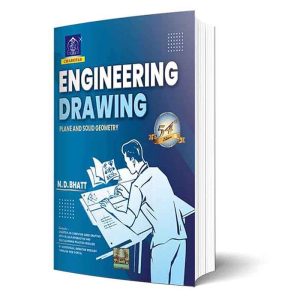Description
Civil engineering is a broad field of engineering that focuses on the design, construction, and maintenance of the physical and naturally built environment. This includes infrastructure such as roads, bridges, buildings, water supply systems, sewage treatment plants, airports, and dams. Civil engineers play a key role in improving the quality of life through the development of safe, sustainable, and functional structures.
### Key Areas of Civil Engineering:
1. **Structural Engineering**: This area focuses on designing and analyzing structures like buildings, bridges, and towers to ensure they are stable, safe, and able to withstand various forces.
2. **Geotechnical Engineering**: This discipline deals with the behavior of earth materials (soil, rock, etc.) and how they interact with structures. It is essential for foundation design, tunneling, and understanding natural hazards such as landslides.
3. **Transportation Engineering**: Transportation engineers plan, design, and manage transportation systems (roads, highways, railways, airports, and ports) to ensure efficient movement of people and goods.
4. **Environmental Engineering**: Environmental engineers focus on protecting the environment by developing systems for water and wastewater treatment, air quality control, and waste management.
5. **Water Resources Engineering**: This involves the management and development of water resources, including designing systems for irrigation, drainage, dams, and flood control.
6. **Construction Engineering**: This branch oversees the actual construction process, ensuring that projects are built on time, within budget, and to the required quality standards.
7. **Urban Planning**: Civil engineers also work in urban planning, designing cities and towns to be more sustainable and livable, incorporating green spaces, efficient traffic systems, and eco-friendly buildings.
### Skills Required:
– **Mathematics and Physics**: Civil engineering relies heavily on advanced mathematics and physics to design and analyze structures.
– **Problem-Solving**: Engineers need to approach complex issues with creative solutions.
– **Attention to Detail**: Small errors in calculations or designs can lead to significant problems.
– **Communication Skills**: Civil engineers must communicate clearly with clients, contractors, and other professionals involved in a project.
### Tools Used in Civil Engineering:
– **Computer-Aided Design (CAD)**: Software like AutoCAD, Revit, and Civil 3D is widely used for creating detailed engineering designs.
– **Building Information Modeling (BIM)**: This technology helps in planning, designing, and managing building projects in a digital environment.
– **Finite Element Analysis (FEA)**: Used for simulating physical phenomena to test and improve designs.





Reviews
There are no reviews yet.